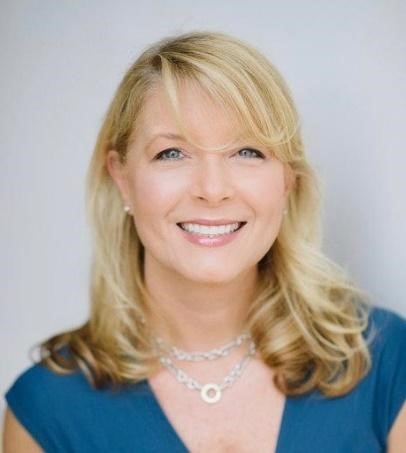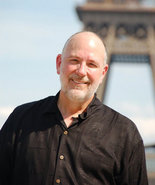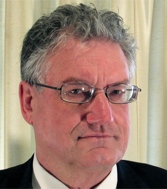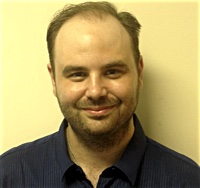Distinguishing Pathology from Non-ordinary Experiences in Patients: It’s not as easy as you may think….
$50.00
Presenter: J. Kim Penberthy, Ph.D., ABPP
Dr. J. Kim Penberthy is a board-certified clinical psychologist and Professor of Psychiatry and Neurobehavioral Sciences at the University of Virginia School of Medicine. She specializes in the integration of contemplative practices—such as mindfulness, self-compassion, and meaning-centered interventions—into psychotherapy and clinical care. Her work focuses on serious illness, end-of-life concerns, and spiritual and existential aspects of psychological wellbeing.
Dr. Penberthy has published extensively on mindfulness-based interventions, spiritual and religious issues in clinical practice, and the interface between science and contemplative wisdom. She is a founding member of the UVA Contemplative Sciences Center and has led national workshops and trainings on integrating mindfulness and meaning-making into medical and psychological care. Her clinical experience includes working with individuals facing terminal illness, prolonged grief, and death anxiety.
Her background uniquely qualifies her to speak on how contemplative approaches can support individuals navigating fear of death and grief after loss, while also training clinicians to recognize and respond to non-ordinary experiences in a respectful, non-pathologizing manner.
Overview:
In both clinical and contemplative settings, individuals frequently report experiences that fall outside ordinary waking consciousness—such as near-death experiences, after-death communications, spiritual awakenings, and spontaneous mystical states. While these may superficially resemble psychopathological symptoms (e.g., hallucinations, dissociation, delusions), many such experiences are deeply meaningful, culturally normative, or even transformative. Clinicians and researchers are increasingly called upon to make nuanced distinctions between psychopathology and non-ordinary experiences (NOEs), especially in contexts of grief, trauma, spiritual practice, or end-of-life care.
This session explores the complexity of this clinical discernment. Participants will learn frameworks for distinguishing between pathology and non-pathology, considering factors such as: intact reality testing, cultural context, degree of distress or functional impairment, and the presence of integration or insight following the experience (Lukoff, Lu, & Turner, 1998; Grof & Grof, 1989). We will also examine how diagnostic systems such as the DSM-5 acknowledge spiritual or religious experiences through the “Religious or Spiritual Problem” V code (American Psychiatric Association, 2013).
Drawing from transpersonal psychology, contemplative science, and trauma-informed care, we advocate for an integrative and culturally sensitive approach that avoids pathologizing the extraordinary. Case studies will illustrate how misdiagnosis can lead to unnecessary treatment, while respectful inquiry and meaning-centered dialogue can facilitate posttraumatic growth and healing (Corcoran & Walsh, 2010; Greyson, 2000).
This session invites participants to explore how clinicians, caregivers, and contemplative practitioners can skillfully hold space for NOEs—balancing curiosity and compassion with clinical responsibility.
Learning Objectives: Intended Audience: Intermediate
- Describe the diagnostic criteria approach for psychiatric disorders, including what defines a psychopathology.
- Describe non-ordinary experiences that patients may report, including spontaneous and induced experiences such as near death experiences and out-of-body experiences.
- Describe how to approach a patient who is reporting non-ordinary experiences in order to optimize understanding and healing.
Attendees must attend the entirety of the program and complete the Evaluation sent after the program. Evaluations will be sent via email shortly after the Live webinar. CE Certificates will be processed and emailed within 5 – 10 business days from Live Webinar.
The Society of Clinical Psychology, Division 12 and Dr. Penberthy do not have commercial support for the content of this webinar including endorsement of products, conflict of interest including but not limited to research grants, royalties for books or training, commercial support from companies or pharmaceutical sponsorship.
If you require any special needs assistance, please contact the SCP Central Office at [email protected].
Description
Presenter: J. Kim Penberthy, Ph.D., ABPP
Dr. J. Kim Penberthy is a board-certified clinical psychologist and Professor of Psychiatry and Neurobehavioral Sciences at the University of Virginia School of Medicine. She specializes in the integration of contemplative practices—such as mindfulness, self-compassion, and meaning-centered interventions—into psychotherapy and clinical care. Her work focuses on serious illness, end-of-life concerns, and spiritual and existential aspects of psychological wellbeing.
Dr. Penberthy has published extensively on mindfulness-based interventions, spiritual and religious issues in clinical practice, and the interface between science and contemplative wisdom. She is a founding member of the UVA Contemplative Sciences Center and has led national workshops and trainings on integrating mindfulness and meaning-making into medical and psychological care. Her clinical experience includes working with individuals facing terminal illness, prolonged grief, and death anxiety.
Her background uniquely qualifies her to speak on how contemplative approaches can support individuals navigating fear of death and grief after loss, while also training clinicians to recognize and respond to non-ordinary experiences in a respectful, non-pathologizing manner.
Overview:
In both clinical and contemplative settings, individuals frequently report experiences that fall outside ordinary waking consciousness—such as near-death experiences, after-death communications, spiritual awakenings, and spontaneous mystical states. While these may superficially resemble psychopathological symptoms (e.g., hallucinations, dissociation, delusions), many such experiences are deeply meaningful, culturally normative, or even transformative. Clinicians and researchers are increasingly called upon to make nuanced distinctions between psychopathology and non-ordinary experiences (NOEs), especially in contexts of grief, trauma, spiritual practice, or end-of-life care.
This session explores the complexity of this clinical discernment. Participants will learn frameworks for distinguishing between pathology and non-pathology, considering factors such as: intact reality testing, cultural context, degree of distress or functional impairment, and the presence of integration or insight following the experience (Lukoff, Lu, & Turner, 1998; Grof & Grof, 1989). We will also examine how diagnostic systems such as the DSM-5 acknowledge spiritual or religious experiences through the “Religious or Spiritual Problem” V code (American Psychiatric Association, 2013).
Drawing from transpersonal psychology, contemplative science, and trauma-informed care, we advocate for an integrative and culturally sensitive approach that avoids pathologizing the extraordinary. Case studies will illustrate how misdiagnosis can lead to unnecessary treatment, while respectful inquiry and meaning-centered dialogue can facilitate posttraumatic growth and healing (Corcoran & Walsh, 2010; Greyson, 2000).
This session invites participants to explore how clinicians, caregivers, and contemplative practitioners can skillfully hold space for NOEs—balancing curiosity and compassion with clinical responsibility.
Learning Objectives: Intended Audience: Intermediate
- Describe the diagnostic criteria approach for psychiatric disorders, including what defines a psychopathology.
- Describe non-ordinary experiences that patients may report, including spontaneous and induced experiences such as near death experiences and out-of-body experiences.
- Describe how to approach a patient who is reporting non-ordinary experiences in order to optimize understanding and healing.
Attendees must attend the entirety of the program and complete the Evaluation sent after the program. Evaluations will be sent via email shortly after the Live webinar. CE Certificates will be processed and emailed within 5 – 10 business days from Live Webinar.
The Society of Clinical Psychology, Division 12 and Dr. Penberthy do not have commercial support for the content of this webinar including endorsement of products, conflict of interest including but not limited to research grants, royalties for books or training, commercial support from companies or pharmaceutical sponsorship.
If you require any special needs assistance, please contact the SCP Central Office at [email protected].






Reviews
There are no reviews yet.